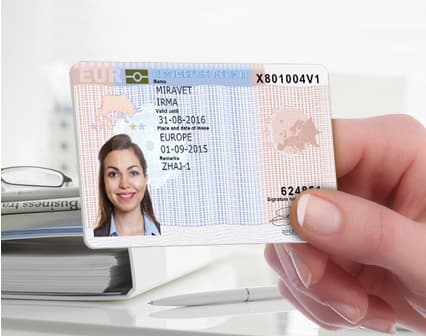Cyprus is set to embrace an EU directive, known as the Blue Card, that accelerates the issuance of residence permits for highly skilled workers from third countries seeking employment on the island.
The Cabinet on Wednesday approved a bill, easing entry criteria into the Republic with the goal of enhancing the island’s workforce, particularly for foreign-owned high-tech and fintech companies relocating to Cyprus.
Cyprus is three months behind schedule as all member states should have integrated the new rules into their legislation by November 2023. The scheme does not apply in Denmark and Ireland.
The Blue Card affords non-EU highly qualified individuals the privilege to live and work in an EU member state. Eligible employees from third countries must possess advanced professional qualifications, such as a university degree, and secure an employment contract or a binding job offer for at least one year with a salary exceeding the EU average.
The government-prepared bill aligns Cyprus with the relevant European directive.
The Blue Card carries relaxed entry and residency requirements, allows mobility within member states and offers enhanced rights to its holders.
The bill defines “high specialisation” as holding a tertiary education degree, or alternatively, directors and professionals in information and communication technologies (ICT) can have relevant professional experience of at least three years within the seven years preceding the Blue Card application.
The entry process for high-skilled workers is reportedly simplified, based on specific definitions and criteria for engaging in high-skilled activities. The bill provides flexibility in determining entry volumes and includes sanctions against employers failing to fulfill their obligations.
1.6 times median wage
Regarding salary requirements, the bill mandates that Blue Card holders receive salaries ranging from 1 to 1.6 times the average gross annual salary of the member state. In 2022, the median wage in Cyprus closed at €1701.
At present, private sector net salaries, according to surveys, average slightly below €1,500, while low-paid civil servants, as claimed by the unions, currently take home between €1,100 and €1,500 after a decade of continuous service.
After months of negotiations, the minimum wage in Cyprus was set at €1,000 after a six-month period.
The new Blue Card bill also extends benefits to holders of international protection, grants increased rights to family members of Blue Card holders, and introduces the possibility of short and long-term mobility within the EU based on simplified rules after twelve months of employment in the first member state.
The bill also introduces more flexible provisions for accessing long-term resident status, requiring validation of a valid employment contract and relevant high professional qualifications by the Department of Labour for both the first permit and changing employers within the initial twelve months of residence.
To expedite the Blue Card issuance process and enhance convenience for applicants, a one-stop service will be established at the Population and Migration Registry Department. The Ministry of Interior asserts that these amendments align with the talent attraction program and contribute to broader efforts to promote legal migration as a means of managing migration.
The implementation of the European directive reflects the EU’s aim to evolve into a knowledge-based and innovative economy, reduce administrative burdens on businesses, and better align labour supply with demand.










